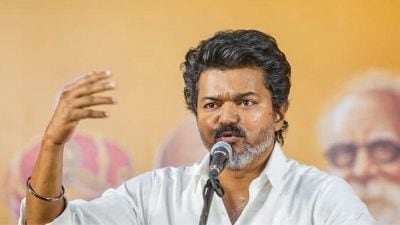Prime Minister Narendra Modi Sunday told the leaders of Brazil and South Africa that the IBSA grouping can send a message of “unity, cooperation and humanity” at a time when the world appears fragmented and divided.
At the meeting with Brazil President Luiz Inácio Lula da Silva and South Africa President Cyril Ramaphosa on the sidelines of the G20 summit in Johannesburg, Modi said there is no place for “double standards on terrorism” and called for united action. In this context, he proposed institutionalising the National Security Advisers-level dialogue between the three countries.

He also proposed setting up an IBSA fund to promote climate-resilient agriculture and a digital innovation alliance to enable sharing of digital public infrastructure such as the unified payments interface (UPI), health platforms such as CoWIN, cybersecurity frameworks and women-led tech initiatives.
He suggested that the second of these initiatives could be launched at the AI Impact Summit to be held in India next year.
“IBSA is not just a group of three countries; it connects three continents, three major democracies and three major economies,” the PM said. The meeting, he added, is “historic and timely”, coming at the end of four consecutive G20 presidencies held by Global South countries.
“The three IBSA countries have held the G20 presidency over the past three years. In these three summits, we have taken several important initiatives on shared priorities such as human-centric development, multilateral reform, and sustainable growth. Now, it is our responsibility to strengthen and strengthen these initiatives,” he said.
Pushing for UN Security Council reforms, Modi said global institutions “do not represent today’s world”, noting that none of the IBSA countries is a permanent UNSC member. Institutional reform, he said, “is no longer an option, but a necessity”.
Story continues below this ad
He said the three countries must “move forward in close coordination” on the issue of terrorism. “There is no place for any double standards on such a serious issue. For global peace and prosperity, we must take united action.”
Modi also hailed the IBSA Fund which, he said, had helped complete around fifty projects in sectors such as education, health, women’s empowerment and solar energy in forty countries. “To further strengthen this spirit, we can establish the IBSA Fund for Climate Resilient Agriculture,” he said.
In a separate meeting, Modi and Ramaphosa reviewed bilateral ties and discussed ways to enhance cooperation in AI, digital public infrastructure and critical minerals.
“The leaders welcomed the growing presence of Indian firms in South Africa and agreed to facilitate mutual investments, especially in infrastructure, technology, innovation, mining and start-up sectors,” a statement from the Ministry of External Affairs said.
Story continues below this ad
The Prime Minister also thanked Ramaphosa for the relocation of cheetahs and invited South Africa to join the International Big Cat Alliance led by India.
Both leaders agreed to work jointly to “amplify the voice of the Global South”. “President Ramaphosa assured South Africa’s full support to India’s upcoming Chairship of BRICS in 2026,” the statement said.
Riding out Trump churn
With the US administration led by President Donald Trump disrupting international trade, Delhi’s outreach to Brazil and South Africa has a strategic logic. The three countries have had to bear the brunt of Trump’s hostility in the past 10 months, and are thinking of ways to navigate the turbulent geoeconomics and politics of the day.









